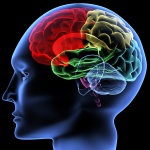The following list of resources were originally created for the 2011 REA annual meeting titled Brain Matters: Neuroscience, Creativity, Diversity . The list has since been updated with additional resources. Readers may also see papers from the conference addressing the role of neuroscience and religious education.
Introductory Texts
David A. Hogue Remembering the Future, Imagining the Past: Story, Ritual, and the Human Brain
Malcolm Jeeves and Warren S. Brown, Neuroscience, Psychology and Religion
Tracey Tokuhama- Espinosa, The New Science of Teaching and Learning
Steven R. Quartz and Terrence J. Sejnowski, Liars, Lovers and Heroes
Daniel Siegel The Developing Mind
David A. Sousa, Mind, Brain, and Education: Neuroscience Implications for the Classroom
Carl Zimmer, Soul Made Flesh: The Discovery of the Brain–and How it Changed the World
James Zull, The Art of Changing the Brain: Enriching the Practice of Teaching by Exploring the Biology of Learning
 Introductory Websites
Introductory Websites
Brain Facts. org (Society for Neuroscience)
Center for Neuroscience & Society: Neuroethics Open Educational Resource
PBS The Secret Life of the Brain
Brain Targeted Teaching (Johns Hopkins/ Mariale Hardiman)
The Dana Foundation (Brain Research)
Popular Readings (General Public)
Barbara Bradley Hagerty, Fingerprints of God: The Search for the Science of Spirituality
Daniel Goleman, Social Intelligence: The New Science of Human Relationships
Malcolm Gladwell, Blink: The Power of Thinking Without Thinking
Mary Gordon, Roots of Empathy: Changing the World Child by Child
PBS, The Secret Life of the Brain website
 Neuroscience General
Neuroscience General
Antonio Damasio, The Feeling of What Happens: Body and Emotion in the Making of Consciousness
Developmental Cognitive Neuroscience (Adele Diamond)
Eric R. Kandel, In Search of Memory: The Emergence of a New Science of Mind
Joseph LeDoux, Synaptic Self: How Our Brains Become Who We Are
John Medina Brain Rules: 12 Principles for Surviving and Thriving at Work, Home, and School
Articles by Mary Helen Immordino- Yang
Brain and Behavior Foundation: The Brain & Behavior Research Foundation is committed to alleviating the suffering caused by mental illness by awarding grants that will lead to advances and breakthroughs in scientific research.
Neuroscience and Religion (Explorations and Issues)
Justin Barrett Cognitive Science, Religion, and Theology: From Human Minds to Divine Minds (Templeton Science and Religion Series)
Warren S. Brown and Brad D. Strawn The Physical Nature of Christian Life: Neuroscience, Psychology, and the Church
Contemplative Mind and Society Website
Joel B. Green, Body, Soul, and Human Life: The Nature of Humanity in the Bible
Fetzer Institute on Science & Spirituality
Mark Graves, Mind, Brain and the Elusive Soul
Mark A. Maddix and Dean G. Blevins Neuroscience and Christian Formation
Patrick McNamara Religion, Neuroscience and the Self: A New Personalism (Routledge Studies in Neurotheology, Cognitive Science and Religion)
Patrick McNamara The Neuroscience of Religious Experience
Nancy Murphy and Warren S. Brown, Did My Neurons Make Me Do It?
Andrew Newberg, How God Changes Your Brain: Breakthrough Findings from a Leading Neuroscientist
Brad D. Strawn and Warren S. Brown: Enhancing Christian Life: How Extended Cognition Augments Religious Community
Neuroscience and Education
(Explorations and Issues)
Tracey Tokuhama- Espinosa, Mind, Brain, and Education Science: A Comprehensive Guide to the New Brain- Based Teaching
Uta Frith, Sarah- Jayne Blakemore, The Learning Brain: Lessons for Education
John Medima, Brain Rules for Baby: How to Raise a Smart and Happy Child from Zero to Five
NEnet — The NeuroEducational Research Network
OECD, Understanding the Brain: Towards a New Learning Science
James E. Zull, From Brain to Mind: Using Neuroscience to Guide Change in Education
Short Video Clips
 Video on Untangling the Brain from Nature Video
Video on Untangling the Brain from Nature Video
TED Talk: V.S. Ramanchandran on the Mind. Vilayanur Ramachandran tells us what brain damage can reveal about the connection between celebral tissue and the mind, using three startling delusions as examples.
TED Talk: David Brooks on The Social Animal. Tapping into the findings of his latest book, NYTimes columnist David Brooks unpacks new insights into human nature from the cognitive sciences. Once you get past the comments on politics you gain insight on the power of neuroscience in conversation with religion, children and educational practice.
Changing Brains Website developed by Helen Neville and the University of Oregon Brain Development Lab addressing the basics of neuroplasticity and brain development in young children. Site includes video segments on vision, hearing, motor skills, attention, language, reading, math, music, as well as emotions and learning. Includes opportunity to order DVD.
Brains R Us describes a series of meetings/ videos compiled on The Science Network(sponsored by UC San Diego, Vanderbilt University, The Salk Institute among others) which provides several presentations within the last ten years on brain and learning. TSNoffers other challenging presentations including a series on religion and neuroscience titled Beyond Belief. The Greater Good Science Center offers a segment on mind and body, including intersections between neuroscience and mindfulness.


